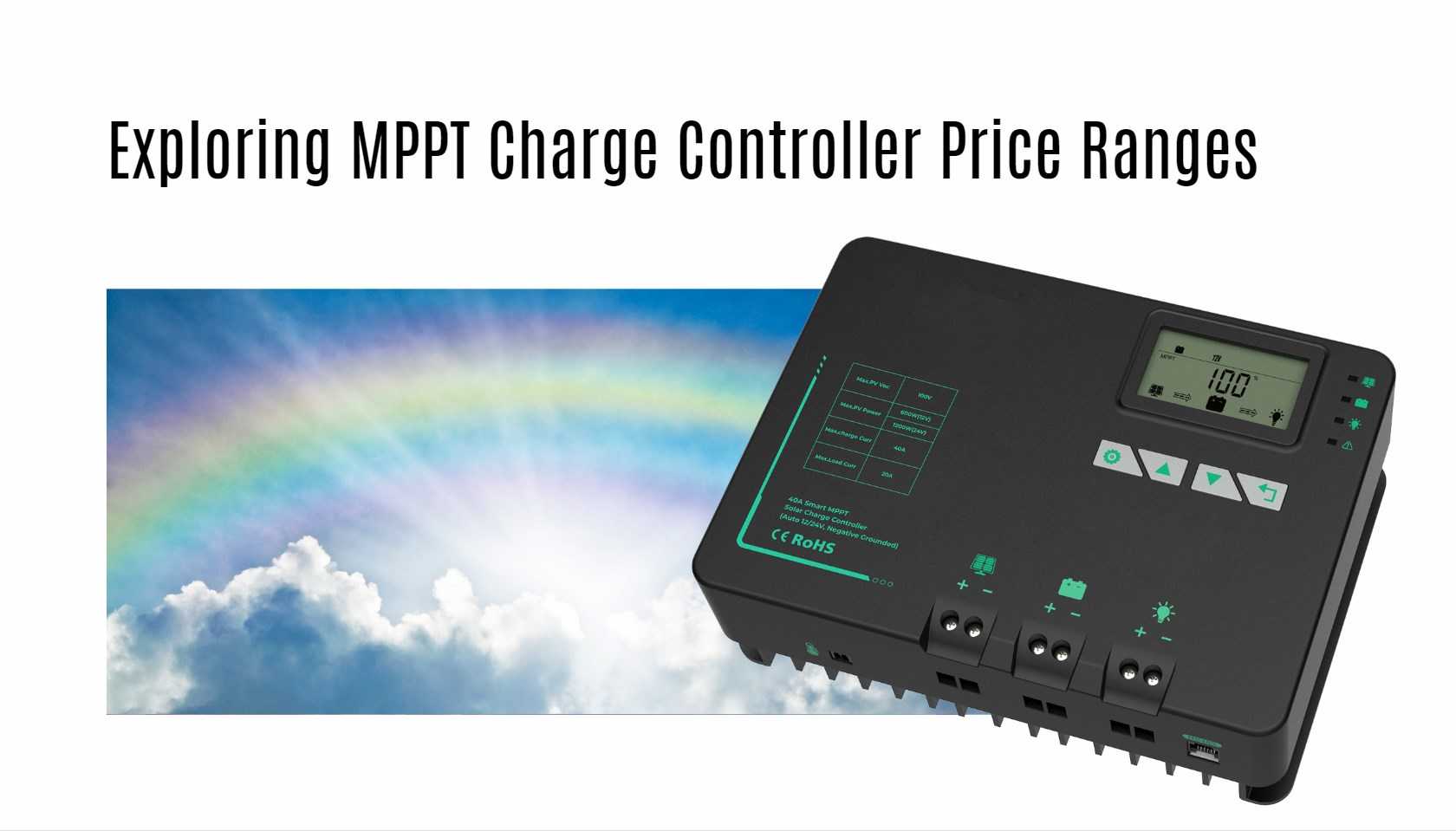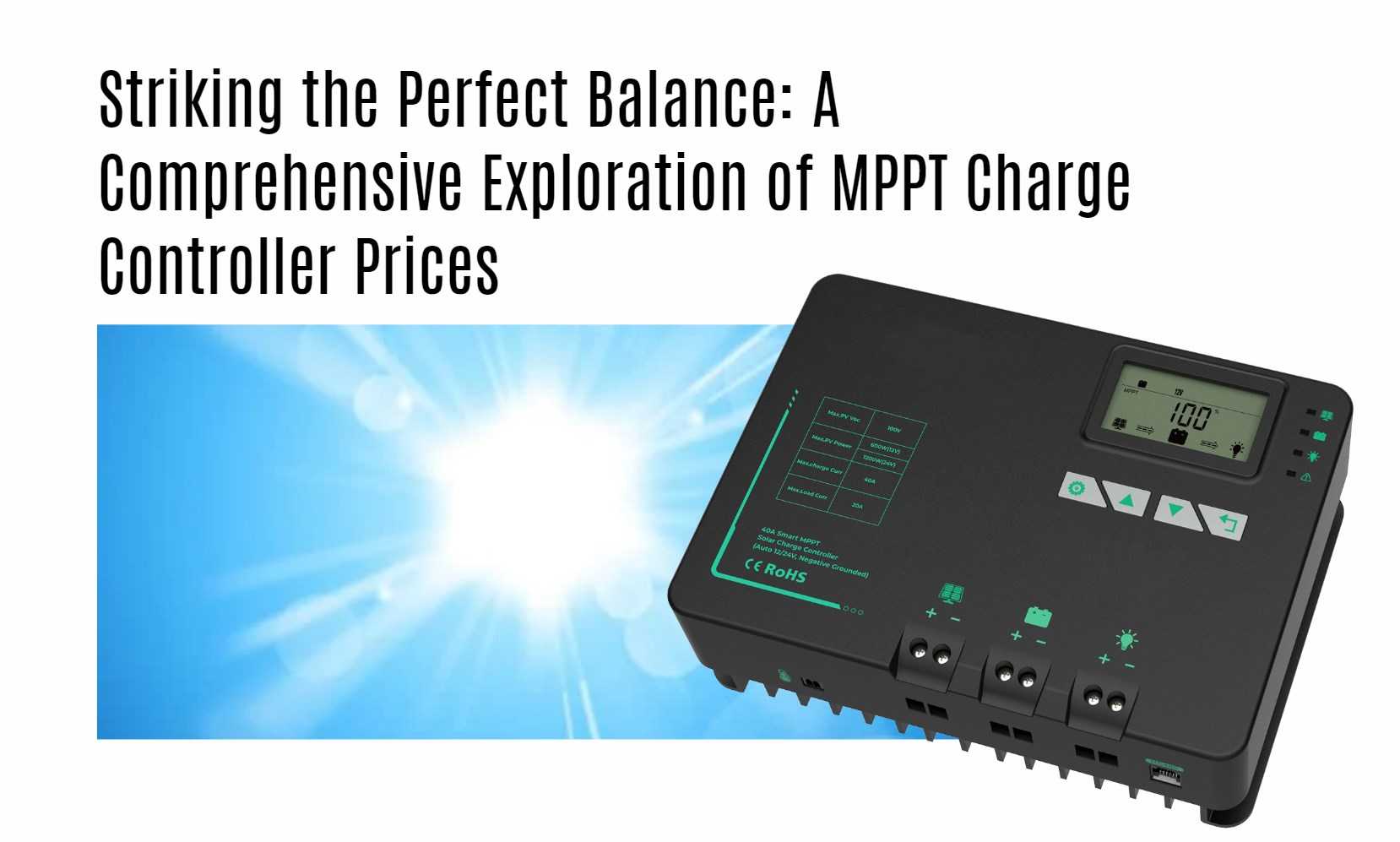In the world of solar power systems, finding the right balance between performance and cost is crucial. One essential component that greatly impacts the overall efficiency of a solar setup is the MPPT (Maximum Power Point Tracking) charge controller. In this article, we will delve deep into the world of MPPT charge controller prices, discussing their significance, factors affecting their costs, and key considerations when making a purchase. Join us as we explore the realm of MPPT charge controllers, helping you make an informed decision while striking the perfect balance between performance and budget.
Understanding MPPT Charge Controllers
MPPT charge controllers play a vital role in maximizing the energy output of solar panels. By dynamically adjusting the voltage and current, they ensure that the panels operate at their optimum power point. This results in higher energy harvest, increased efficiency, and ultimately, more significant savings on your electricity bills. However, before diving into the world of MPPT charge controller prices, it’s important to grasp the key features and benefits these controllers offer.
Factors Influencing MPPT Charge Controller Prices
a) Maximum Charging Current and Voltage: MPPT charge controllers come in various models with different specifications. Higher current and voltage ratings often come at a higher price point. Assessing your system’s requirements and future expansion plans will help you determine the ideal specifications for your charge controller.
b) MPPT Efficiency: The efficiency of the MPPT algorithm employed by a charge controller affects its price. Controllers with advanced tracking algorithms and higher efficiency tend to be more expensive but can yield greater energy gains over time.
c) Build Quality and Durability: The construction quality, durability, and reliability of a charge controller impact its price. Controllers built with robust components and designed for longevity often come at a higher cost but provide peace of mind and long-term value.
d) Additional Features: Some MPPT charge controllers offer additional features such as LCD displays, data logging capabilities, remote monitoring, and advanced communication options. These extra features can add to the cost but may enhance system monitoring and control.
Considerations when Choosing an MPPT Charge Controller
a) System Size and Voltage Compatibility: The charge controller should be compatible with your solar panel array’s size and voltage specifications. Ensure that the controller you choose can handle the maximum current and voltage requirements of your system.
b) Scalability and Expansion: If you plan to expand your solar system in the future, consider a charge controller with ample headroom for additional panels. This will save you from the hassle and expense of upgrading the controller later.
c) Manufacturer Reputation and Support: Opt for reputable manufacturers with a track record of delivering quality products and excellent customer support. This ensures that you have access to technical assistance and warranty coverage if needed.
d) Budget and Value for Money: While cost is an important factor, prioritize value for money rather than opting for the cheapest option. Consider the long-term energy gains and potential savings that a reliable and efficient charge controller can provide.
Exploring MPPT Charge Controller Price Ranges
a) Entry-level Controllers: These budget-friendly options offer basic functionality and are suitable for smaller solar setups. They typically come with lower current and voltage ratings and may have limited additional features. Prices for entry-level MPPT charge controllers can range from $XX to $XX.
b) Mid-range Controllers: These controllers strike a balance between price and performance. They offer higher current and voltage ratings, improved efficiency, and may include some additional features. Prices for mid-range MPPT charge controllers can vary between $XX and $XX.
c) High-end Controllers: Designed for larger solar systems and professional installations, high-end MPPT charge controllers provide advanced features, high efficiency, and robust build quality. Prices for high-end MPPT charge controllers can range from $XX to $XX, depending on the specifications and brand reputation.

Evaluating Cost-effectiveness
When assessing the cost-effectiveness of an MPPT charge controller, it’s essential to consider the overall return on investment (ROI) and long-term savings. Although higher-quality controllers may come with a higher initial price, their improved efficiency and energy optimization capabilities can result in greater electricity generation and reduced payback periods. It’s crucial to weigh the upfront cost against the potential energy gains and financial benefits over the system’s lifespan.
Making an Informed Decision
To ensure you make the right choice when selecting an MPPT charge controller, consider the following steps: a) Determine your system’s requirements, including maximum current and voltage ratings. b) Research reputable manufacturers and read reviews to assess their product quality and customer satisfaction. c) Compare prices, features, and specifications of various MPPT charge controllers within your budget range. d) Seek advice from solar professionals or consult with experts to gain additional insights. e) Prioritize controllers that offer a balance between performance, reliability, and value for money. f) Review warranty terms, technical support, and after-sales service offered by the manufacturer.
Conclusion
When exploring MPPT charge controller prices, it’s essential to strike the perfect balance between cost and performance. By understanding the significance of MPPT charge controllers, considering the factors influencing their prices, and making informed decisions, you can optimize your solar power system’s efficiency and maximize your energy savings. Remember, investing in a high-quality MPPT charge controller can yield long-term benefits and ensure a smooth and reliable solar experience. So, take the time to research, evaluate, and choose wisely to find the ideal MPPT charge controller that suits both your system’s needs and your budget.
Related Posts
- Zapping the Voltage: A Simple Guide to Multimeter Testing for AAA Battery Voltage
- Will Voltage Affect Battery Performance?
- Will solid-state batteries replace lithium?
- Will Batteries Last Longer in the Freezer? Answers to Your Freezing Battery Myths!
- Will batteries last longer in the freezer?
- Why you shouldn’t charge your phone overnight?




